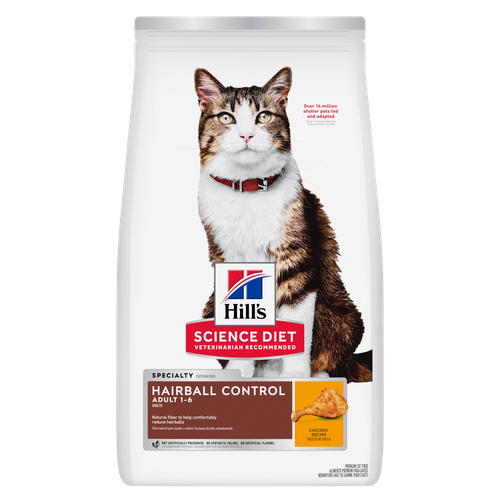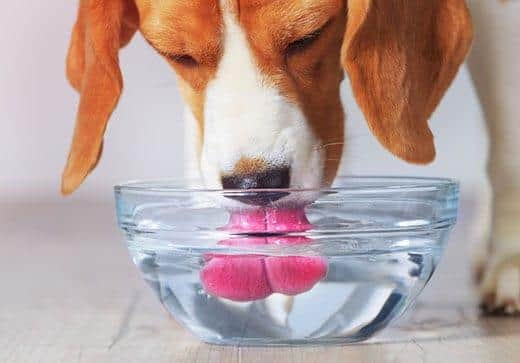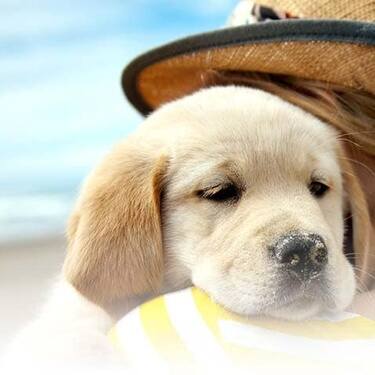
-
Find the right food for your petTake this quiz to see which food may be the best for your furry friend.Find the right food for your petTake this quiz to see which food may be the best for your furry friend.Health CategoryFeatured products
 Adult Perfect Weight & Joint Support Chicken & Brown Rice Recipe Dog Food
Adult Perfect Weight & Joint Support Chicken & Brown Rice Recipe Dog FoodThis weight management and mobility support dog food was created with Hill’s unique understanding of the biology of overweight dogs.
Shop Now Adult Perfect Digestion Chicken, Barley & Whole Oats Recipe Dog Food
Adult Perfect Digestion Chicken, Barley & Whole Oats Recipe Dog FoodScience Diet's breakthrough nutrition supports ultimate digestive well-being & healthy microbiome
Shop Now Hill's Science Diet Adult Healthy Mobility Large Breed Chicken Meal, Barley & Brown Rice Recipe Dog Food
Hill's Science Diet Adult Healthy Mobility Large Breed Chicken Meal, Barley & Brown Rice Recipe Dog FoodAdvanced nutrition shown to support joint health and improve mobility
Shop NowFeatured products Adult Hairball Control Chicken Recipe Cat Food
Adult Hairball Control Chicken Recipe Cat FoodNatural fibre comfortably reduces hairballs
Shop Now Adult Healthy Cuisine Roasted Chicken & Rice Medley Cat Food
Adult Healthy Cuisine Roasted Chicken & Rice Medley Cat FoodDelicious roasted chicken and rice in a mouthwatering sauce
Shop Now Adult Perfect Digestion Chicken, Barley & Whole Oats Recipe Cat Food
Adult Perfect Digestion Chicken, Barley & Whole Oats Recipe Cat FoodHill's Science Diet's breakthrough nutrition supports ultimate digestive well-being & healthy microbiome
Shop Now -
DogCat
- Cat Tips & Articles
-
Health Category
- Weight
- Skin & Food Sensitivities
- Urinary
- Digestive
- Kidney
- Dental
- Serious Illness
-
Life Stage
- Kitten Nutrition
- Adult Nutrition
Featured articles Tips on How to Store Your Dog or Cat Food Properly
Tips on How to Store Your Dog or Cat Food ProperlyWhere you store your cat and dog food can make a big difference in the quality and freshness once it is opened. Here are some common questions and recommendations for optimal storage for all of Hill’s dry and canned cat and dog food.
Read More Water
WaterWater is the most important nutrient of all and essential for life. Animals can lose almost all their fat and half their protein and still survive, but if they lose 15% of their water, it will mean death.
Read More Fun Ideas for Kids and Pets This Summer
Fun Ideas for Kids and Pets This SummerOutdoor summer activities with your dog or cat can be fun for kids, too. Learn how they also teach kids responsibility & creates a bond with their pet.
Read More -


Have you noticed your dog drinking lots of water all of a sudden? Excessive thirst in dogs, also known as polydipsia, is a common observation amongst dog parents, and one you shouldn't ignore. There are many possible causes of excessive thirst in dogs, and some of them can be life-threatening if they aren't addressed in time.
If your dog is suddenly very thirsty for a day or so, it's usually not a cause for concern. Dogs may drink more if they're very hot, bored, have eaten certain foods, or have recently exercised. Very active dogs and nursing dogs drink more than other dogs. If your dog has started consistently draining the water bowl and hitting up the toilets, however, and it has been going on for more than a few days, then it's time for a checkup with your veterinarian.
Your vet might check your dog for these more common medical reasons for excessive thirst.
Diabetes Mellitus
Diabetes mellitus causes high blood sugar that's either due to insulin deficiency or insulin resistance. Excess sugar in the blood is excreted by the kidneys into the urine and drags water along with it. In this case, excessive urination can cause excessive thirst in dogs. Diabetes mellitus is treated by modifying the dog's meals and administering insulin.
Kidney Disease
Dogs with kidney problems may not be able to concentrate their urine. They pee more, and in order to avoid dehydration, they have to drink more. Kidney disease is treated by modifying the dog's food and addressing any underlying causes of kidney failure, such as kidney infections or stones.

Cushing's Syndrome
Cushing's syndrome is caused when the adrenal gland excretes excessive amounts of cortisol, either due to a tumor in the pituitary gland or an adrenal tumor. Excessive cortisol increases thirst, which then increases urination. Depending on the location of the tumor, Cushing's syndrome is treated with medication or surgery.
Diarrhea or Vomiting
Any dog who has diarrhea or vomiting loses body fluids. In order to avoid dehydration, dogs who've recently suffered from diarrhea and/or vomiting may drink more than normal.
Pyometra
Pyometra is the medical term for an infected uterus. This condition only occurs in female dogs who have not been spayed. Pyometra is a life-threatening condition and requires prompt surgical treatment, antibiotics and rehydration with intravenous fluid therapy.


Tasty Tips
Other Causes of Excessive Thirst in Dogs
A few other reasons your dog may have excessive thirst include:
- Dehydration
- Liver disease
- Cancer
- Infection
- Fever
- Medications, including steroids and diuretics
- Heatstroke or hyperthermia
- Diabetes insipidus
- Hyperthyroidism
- Parasites
- Hypercalcemia
In each of these cases, treatment varies depending on the underlying cause.
Making an Appointment With Your Vet
If you notice your dog drinking a lot more water than usual, then make an appointment with your vet as soon as possible. It may be helpful if you bring in a urine sample and come prepared to answer your vet's questions, such as what type of food you've been feeding your dog, if there have been any changes in your dog's appetite or habits, any travel history and a record of your dog's vaccination and preventive care history. You may also want to write down any questions you have for your vet so you don't forget anything.
Your vet will conduct a complete physical exam on your dog and will likely recommend several laboratory tests — be sure to follow all recommendations. The most common labs ordered include a complete blood count, a blood serum chemistry, urine specific gravity and a urinalysis. These tests are important to narrow down the possible causes. They will give your vet information on how your dog's liver and kidneys are functioning, if there are any signs of infection such as elevated white blood cells, and can help rule out conditions like diabetes mellitus and Cushing's syndrome. Urine specific gravity tests how concentrated your dog's urine is and can help diagnose kidney disease and dehydration. A urinalysis can determine whether there's sugar or bacteria in the urine, among other things. Depending on the results of these tests, your vet may be able to diagnose the problem, or additional testing may be required.
If your dog is drinking lots of water all of a sudden and urinating more often, do not withhold water from your dog. If you do, you may put your dog at risk for life-threatening dehydration. According to the American Kennel Club, signs of dehydration include seeking water, excessive tiredness, dry or tacky gums, loss of skin elasticity and mucousy saliva. Instead, allow your dog to drink, and call your vet. With the help of your vet, you'll be able to determine whether your dog's drinking habit is indicative of a larger problem or harmless. Hydrate to be great, but if your dog is overdoing it, get your vet involved.


Dr. Sarah Wooten graduated from UC Davis School of Veterinary Medicine in 2002. A member of the American Society of Veterinary Journalists, Dr. Wooten divides her professional time between small animal practice in Greeley, Colorado, public speaking on associate issues, leadership, and client communication, and writing. She enjoys camping with her family, skiing, SCUBA, and participating in triathlons.
Related products

Advanced nutrition shown to support joint health and improve mobility

This weight management and mobility support dog food was created with Hill’s unique understanding of the biology of overweight dogs.

Hill's Science Diet Sensitive Stomach & Skin Large Breed dry dog food is gentle on stomachs while nourishing skin & promoting a lustrous coat. In a delicious large bite size for large breed dogs.

Science Diet's breakthrough nutrition supports ultimate digestive well-being & healthy microbiome
Related articles

Learn what you can feed your pregnant or nursing dog to keep her and her new pups healthy.

Learn how today's wet dog food blends have gotten a face lift, and how you'll provide your dog the nutrition he needs in the form he loves.

Learn about choosing the right dog food to help ensure your mature older dog will receive the correct balance of nutrition.

Large breeds of dogs have different nutritional needs than smaller breeds. Learn more about the specific needs of large and giant breeds.

Put your dog on a diet without them knowing
Our low calorie formula helps you control your dog's weight. It's packed with high-quality protein for building lean muscles, and made with purposeful ingredients for a flavorful, nutritious meal. Clinically proven antioxidants, Vitamin C+E, help promote a healthy immune system.
Put your dog on a diet without them knowing
Our low calorie formula helps you control your dog's weight. It's packed with high-quality protein for building lean muscles, and made with purposeful ingredients for a flavorful, nutritious meal. Clinically proven antioxidants, Vitamin C+E, help promote a healthy immune system.

